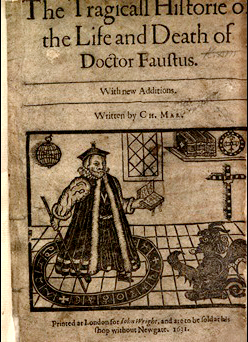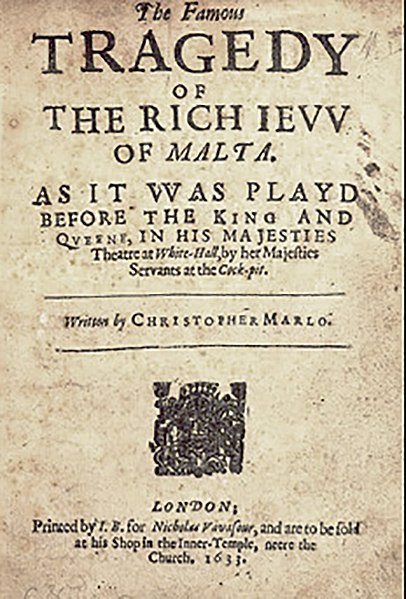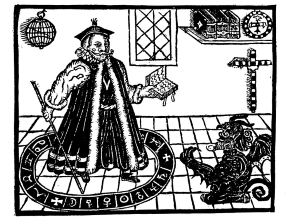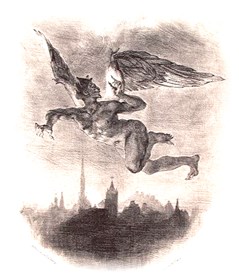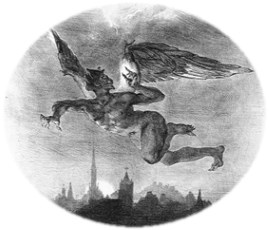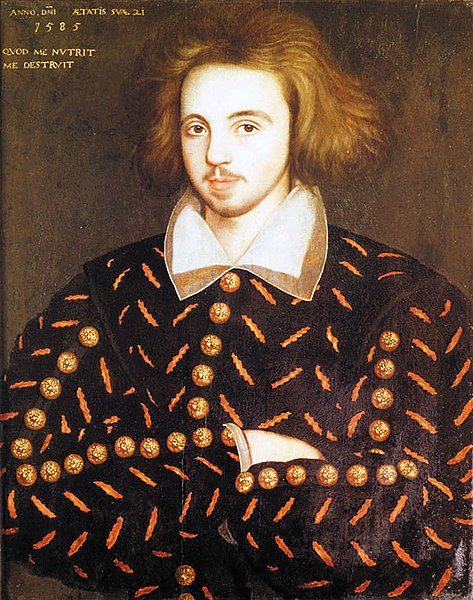
Marlowe, Christopher
Early life and educationBorn in the same year as Shakespeare, Christopher Marlowe led a life that is both mysterious and controversial. Though his exact date of birth is unknown, it was common practice to have infants baptised within days of their birth. As his baptism was on the 26th February 1564, it is generally agreed that he would have been born at some time in the week before.
Though his father was a shoemaker, Marlowe was able to attend The King’s School in Canterbury before earning a Bachelor of Arts degree from Cambridge University. However, it is during his master’s degree in 1587 that the first signs of Marlowe’s secret life began to come to light. The university was at first very reluctant to award Marlowe his degree because of information suggesting he was to go to the English College in Rheims. At this time the college was a popular place for Catholics to gain priesthood, which, under the rule of the Protestant Queen Elizabeth I, was viewed as an act of treason and could be punishable by death.
This early controversy in Marlowe’s life, though, was resolved by a letter from the Privy Council, who were advisors to Queen Elizabeth I, explaining that Christopher Marlowe was acting in unspecified service to the Queen. This is the first indication of the playwright’s secret identity as a spy, and explains why so little is known about Marlowe’s life.
Later years
After finally obtaining his Master of Arts degree, Marlowe is assumed to have become increasingly involved in secret intelligence services. After being present during a fight which ended in a murder in 1589, he was imprisoned for two weeks in Newgate prison for manslaughter, to be later released on bail.
Though his first play, Tamburlaine was produced in 1587 to a great reception which inspired a few other releases, Doctor Faustus, produced only after his death, received the most fame. His early plays, however, led to a growing amount of anxiety surrounding Marlowe’s religious beliefs, this time about him being an atheist. As a result of this, a warrant for his arrest was issued by the Queen’s Privy Council, and within two weeks he was found dead in a bar. The details surrounding his presumed murder are unclear, but it is generally understood that he was fatally stabbed in the head during a bar fight.
There are several different speculative theories on Marlowe’s death, as many of the records have been lost or damaged, or are simply inconsistent. Some academics believe that Marlowe faked his death to escape prosecution for a murder he had committed. It is known he was on bail, and was with friends who were minor spies, who some believe killed Marlowe, while others argue they helped him escape his punishment. One of the most profound theories is that Marlowe continued writing under the new pen name William Shakespeare, and there are links which could indicate it may be true, such as their similar use of blank verse, and the similarities in themes addressed. However, until Marlowe’s true character is unearthed, such ideas cannot be proven, and thus, despite their intriguing ideas, theories surrounding Marlowe’s death should only be entertained cautiously.
Show / hide details
| 1564 |
Probably born in February
|
|
| 1578/9 |
Attended King’s School, Canterbury
|
|
| 1580 |
Won a scholarship to study at Corpus Christi College, Cambridge
|
|
| 1584 |
Awarded his BA
|
|
| 1585? |
Probably wrote Dido, Queen of Carthage
|
|
| 1587 |
Awarded his MA
|
|
| 1587 |
Moved to London to become a full-time writer
|
|
| 1588? |
May have written Doctor Faustus |
|
| 1589 |
Sent to Newgate prison
|
|
| 1590 |
Tamburlaine the Great and its sequel published
|
|
| Late 1591–1592 |
Went to Holland
|
|
| 1591 |
Took lodgings with Thomas Kyd
|
|
| 1592 |
Arrested for brawling
|
|
| 1593 |
Room mate, Thomas Kyd, arrested
|
|
| 1593 |
Accused of heresy
|
|
| 1593 |
Killed in a fight
|
|
| 1594 |
Dido, Queen of Carthage published
|
|
| 1595 |
All Ovid’s Elegies published
|
|
| 1604 |
Doctor Faustus published
|
|
| 1633 |
The Jew of Malta published |
|
| 2002 |
A rose was named after him |
|
| 2011 |
The redeveloped Marlowe Theatre reopened
|


